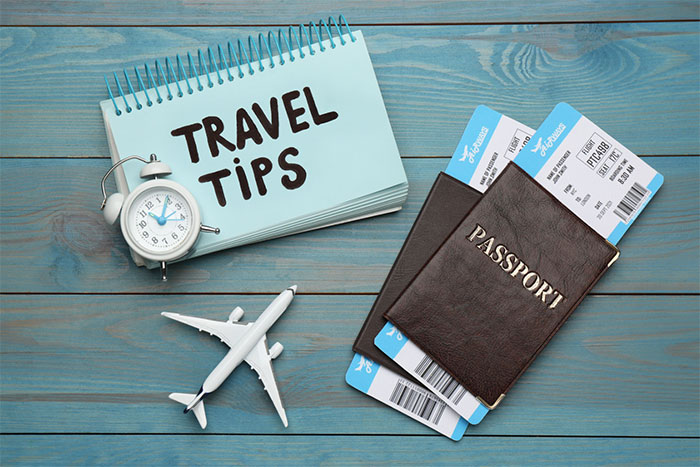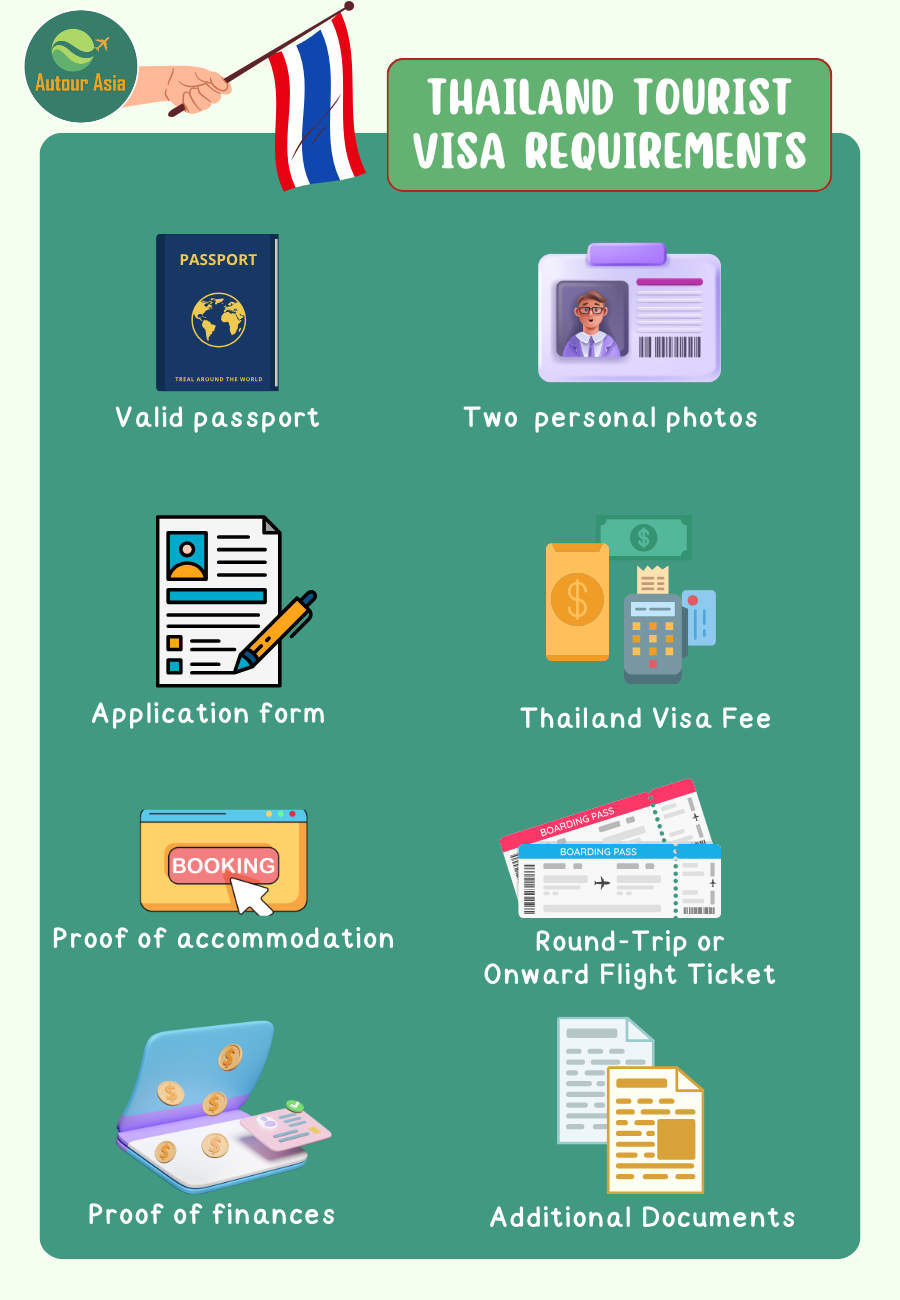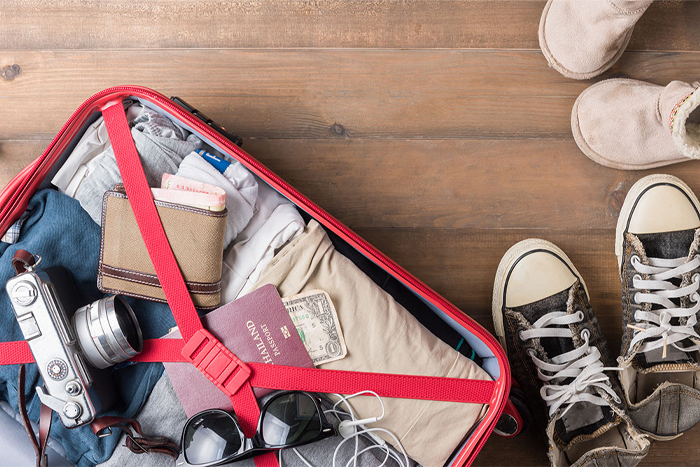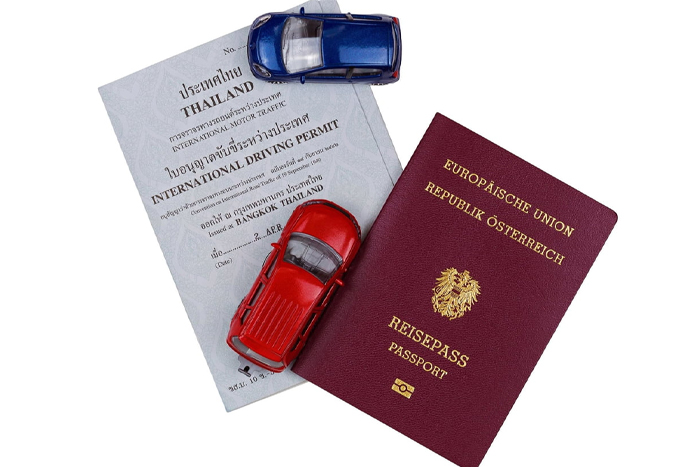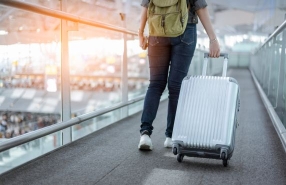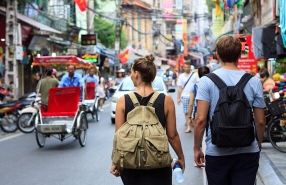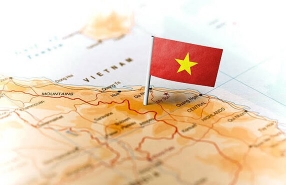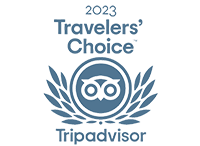Welcome to Autour Asia's ultimate guide on travel tips in Thailand! Thailand, with its dreamy beaches, delicious cuisine, and rich culture, is a fascinating travel destination that attracts millions of visitors each year. Whether you're drawn to Bangkok's golden temples, the lush jungles of the North, or the paradise islands of the South, careful preparation is essential to make the most of your stay. This article will provide you with practical tips and essential information on entry requirements, health, climate, transportation, and local culture, allowing you to plan your trip with peace of mind and fully experience Thailand.
1. Prepare for your trip to Thailand
How to prepare for a trip to Thailand? Before departing for Thailand, it's essential to prepare well. A valuable Thailand travel tip is to start by planning your itinerary based on your interests and the time you have available. Book your flights and accommodations in advance, especially if you're traveling during peak season. Take time to familiarize yourself with Thai culture and customs to avoid cultural faux pas. Finally, learn some basic Thai phrases; locals will appreciate your efforts, and it can help you in your daily interactions.
Before your trip to Thailand, here's a list of essential items to prepare:
Passport valid for at least 6 months after your planned departure date from Thailand.
Tourist visa if your stay exceeds 30 days (for most nationalities).
A few recent passport-sized photos (useful if needed).
Printed copies of your flight reservations (international and domestic).
Detailed printed itinerary of your stay.
Thai baht in cash for your initial expenses.
2. Entry requirements for Thailand
Entry requirements for Thailand are relatively straightforward for many Western travelers. Citizens of numerous countries, including most EU nations, the US, Canada, Australia, and the UK, can enter Thailand for tourism without a visa for up to 30 days (by air) or 15 days (by land). Key requirements include a passport valid for at least 6 months beyond your stay, a confirmed return ticket, and possibly proof of adequate finances. At customs, present your passport, completed arrival card, and proof of onward travel. For stays exceeding 30 days or for non-exempt countries, a visa is required. Always check the latest Thailand travel tips and entry requirements with official sources, as immigration policies can change.
3. Health and safety in Thailand
a. Vaccines for Thailand
Thailand travel tips: Health and safety are crucial aspects of any trip. Before your
trip to Thailand, make sure your routine vaccinations are up to date. Vaccines against hepatitis A and typhoid are generally recommended. Depending on the regions you plan to visit, you might also consider vaccines against hepatitis B, Japanese encephalitis, and rabies.
b. Health precautions and travel insurance
Once there, follow these Thailand travel tips for your health and safety: take basic health precautions such as drinking sealed bottled water, avoiding ice cubes and raw unpeeled foods, using mosquito repellent, and protecting yourself from the sun.
Another important Thailand travel tip: it is strongly recommended to take out travel insurance covering medical expenses and repatriation. Check that your insurance also covers high-risk activities if you plan to go diving or ride a motorcycle.
4. The climate in Thailand
The climate in Thailand is tropical with three main seasons. The hot season extends from March to May, with temperatures that can exceed 40°C (104°F). The rainy season, from June to October, brings intense but generally brief showers. The cool season, from November to February, is considered the
best time to visit Thailand, with milder temperatures and dry weather.
To make the most of your stay, it is recommended to visit Thailand between November and February. If possible, avoid the month of April due to intense heat, as well as September and October, which mark the peak of the monsoon. Following these Thailand travel tips will help you have a more enjoyable and safe experience.
5. Airline baggage in Thailand: What to pack for a trip to Thailand?
For your flight to Thailand, adhere to your airline's baggage rules. Generally, you're allowed one carry-on bag of about 7 kg (standard dimensions: 55 x 35 x 25 cm) and a small personal item. Remember the restrictions on liquids in the cabin (containers of 100 ml max in a 1-liter clear plastic bag). For checked baggage, the allowed weight varies between 20 and 30 kg depending on the airline and class. Weigh your luggage before departure to avoid excess weight fees, mark them for easy identification, and keep your valuables and important documents in your carry-on.
What to pack for a trip to Thailand? For your stay in Thailand, prioritize light and breathable clothing suitable for the tropical climate: t-shirts, shorts, swimwear, and a few modest outfits for temple visits. Don't forget comfortable shoes, a hat, sunglasses, and a small backpack for excursions. Essentials include: sunscreen, mosquito repellent, first-aid kit, personal medications, electrical adapter, chargers, and a power bank. Bring your passport (valid for 6 months after return), copies of important documents, cash, and credit cards. Add a reusable water bottle and plastic bags to protect your belongings from humidity. Travel light, as you can buy most basic products on-site, and leave room for souvenirs.
6. Practical details not to overlook
a. Currency and exchanges during your visit to Thailand
The
currency in Thailand is the Thai Baht (THB). It's best to exchange your money at banks or official exchange offices for the best rates. ATMs are also a convenient option for withdrawing cash. Remember to inform your bank about your trip to avoid any card blocking.
b. Thailand's time zone
Thailand time zone: Thailand is in the GMT+7 time zone. Remember to calculate the time difference with your home country to adjust your schedule and communicate with your loved ones.
c. Electrical adapters and communication
Regarding electricity, Thailand uses Type A, B, and C plugs, with a voltage of 220V and a frequency of 50Hz. To stay connected, it might be wise to buy a local SIM card for your mobile data and calls. Don't forget to download useful apps like translators or offline maps before your departure.
d. Tipping in Thailand
In Thailand, tipping practices differ from Western norms. Although not mandatory, it is appreciated for quality service. In restaurants without service charges, a 5-10% tip is common, while in establishments including these charges, rounding up the bill is generally sufficient. For taxis, it's customary to round up the fare or leave the change. In hotels, a small tip for service staff is welcome. Tour guides and masseuses also appreciate a gesture, usually around 10% of the service price. It's preferable to give tips in baht, the local currency. In summary, although tipping is not a cultural obligation in Thailand, it is a way to show appreciation for attentive service.
7. Transportation in Thailand
How to get around in Thailand?
Getting around in Thailand offers many options. In cities, taxis and tuk-tuks are ubiquitous, but remember to negotiate the price before the trip. In Bangkok, the bus and metro network is efficient and economical. For long distances, trains offer an authentic experience, while domestic flights save time. In tourist areas, renting scooters or bicycles is common, but make sure you're covered by adequate insurance.
If you decide to
drive in Thailand, keep in mind that driving is on the left side of the road. An international driver's license is recommended. Traffic can be chaotic, so be extremely vigilant, especially at night. It's best to avoid driving after dark if possible.
8. Unforgettable discoveries: Thailand's must-see attractions
Thailand captivates with its striking contrasts: golden temples of Bangkok, ancient culture of Chiang Mai, idyllic beaches of Phuket and Koh Samui, and historical ruins of Ayutthaya. Its renowned cuisine, colorful festivals like Songkran, and the warm welcome of its inhabitants make every visit a memorable experience. From urban hustle and bustle to tropical landscapes, the "Land of Smiles" offers a fascinating and diverse snapshot of Southeast Asia.
Thailand, with its cultural and natural wealth, promises an unforgettable journey. Careful preparation is the key to a successful stay in this multifaceted country. By following the Thailand travel tips on health, necessary documents, respecting local customs, and managing your budget, you can fully enjoy your adventure. Thailand will welcome you with its famous smile, breathtaking landscapes, and delicious cuisine. Stay open-minded, respectful of traditions, and let yourself be immersed in the magic of the Kingdom of Siam. Your trip to Thailand promises to be an enriching experience that will leave you with lasting memories.
For specific advice tailored to your trip, please consult
Thailand travel tips or contact Autour Asia,
Thailand Travel Agency directly.
How to plan a trip to Thailand with a baby?
Traveling to Thailand with a baby may seem intimidating, but with good preparation, this vacation with a baby will become a wonderful memory for everyone. To prepare for your holiday with a baby in Thailand, consult the article below: Traveling to Thailand with a baby.
Is it possible to travel to Thailand without a return ticket?
Yes, it is possible to travel to Thailand without a return ticket, but it is not recommended. Thai authorities may ask for proof of departure when entering the country. A return ticket or a ticket to a subsequent destination is often required to avoid problems at immigration.


